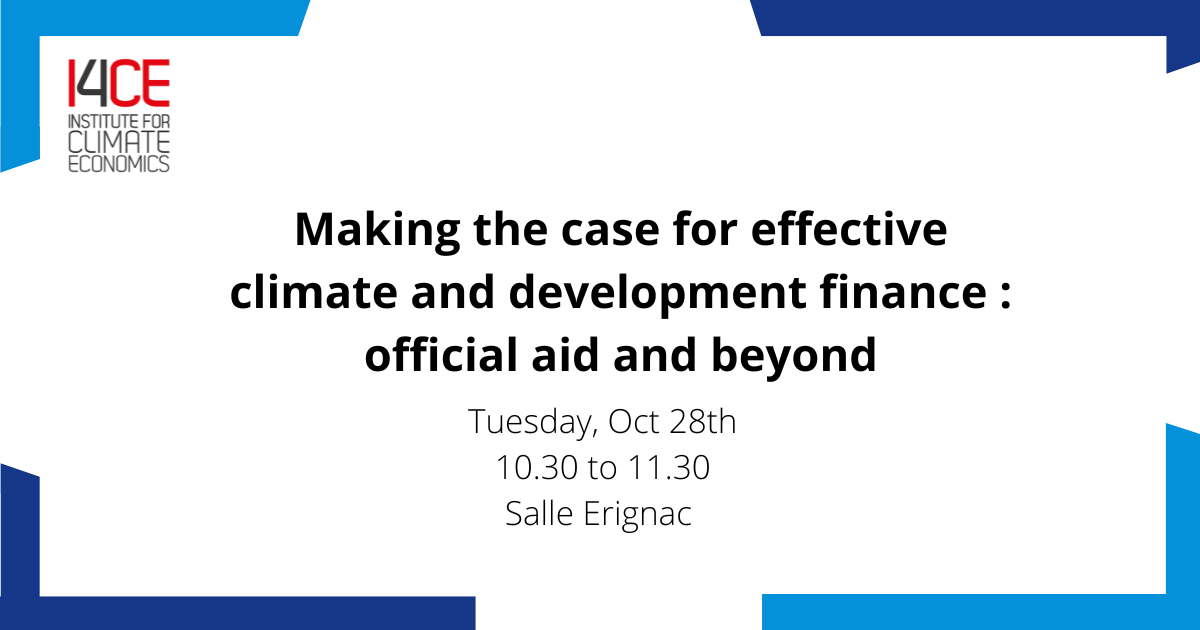Making the case for effective climate & development finance : official aid and beyond
Conferences Webinars - By : Guillaume POTTIER / Blandine ARVIS / Solène METAYERThe replay will be available on November 3.

I4CE hosted an event as part of the Paris Climate and Nature week, taking place on October 27th- 29th at Sciences Po Paris.
Date: Tuesday, October 28th, 2025
Time: 10.30 – 11.30 (Paris time)
Place: Sciences Po Paris, 13 rue de l’Université, 75007 Paris, Salle Erignac.
The New Collective Quantified Goal calls on developed countries to increase funding for climate, with a target of US$ 300bn per year by 2035. The Baku to Belém Roadmap outlining how this funding might be mobilized is still in the works, but concessional funding is certain to play a role. Yet with aid budgets facing widespread cuts, climate change risks being de-prioritized. In this context, the issue of allocation – how and where climate finance is delivered – is key.
This panel brought in various perspectives (think tanks, aid agencies, government) to explore the intersection of climate and development finance in this rapidly evolving context.
Panelists discussed the situations where official development aid (ODA) and more broadly concessional finance remain an effective and even a necessary instrument in order to attain development and climate objectives.
The discussion focused on:
- Present the different and sometimes diverging narratives on climate finance and its intersection with development.
- Find convergence by narrowing in on the types of investments (in terms of sectors, instruments, geographies) which should be considered priorities for climate and development finance.
- Explore how national needs assessments could be refined to maximize the mobilization of official development aid, along with other resources to support a low-carbon, climate-resilient development.
Four panelists representing diverse organizations (think tank, development aid agency, government, and international organization) shared their outlook.
Moderator
-
Friederike Röder, Global Solidarity Levies Task Force
Speakers
-
Audrey Rojkoff, Agence Française de Développement;
-
Tomáš Hos, International Forum on TOSSD Secretariat;
-
Guillaume Pottier, I4CE;
-
Antoine Bergerot, French Treasury, office for multilateral development and climate finance.


